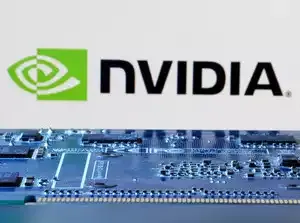Bank of America (BofA) is urging investors to buy Nvidia stock ahead of its upcoming earnings report. The bank’s analysts have labeled Nvidia as a “compelling” investment, citing its strong position in the artificial intelligence (AI) sector, robust financial performance, and future growth potential.
Why Bank of America recommends Nvidia?
Nvidia has become the leader in AI-driven technology, with its advanced graphics processing units (GPUs) powering AI applications worldwide. The demand for its AI chips has surged, with companies like Microsoft, Meta, and Google relying on Nvidia’s hardware for their AI advancements.
According to BofA analyst Vivek Arya, Nvidia’s earnings potential remains strong, and the market is underestimating the impact of its latest AI chips. He has raised the stock’s price target from $165 to $190, indicating a potential upside of nearly 39% from its current level (CNBC).
Nvidia’s financial strength
Nvidia has delivered remarkable stock performance over the past year, tripling its value as the AI sector expands. Analysts expect the company to generate at least $200 billion in free cash flow over the next two years, strengthening its ability to invest in research and development.
The company’s upcoming earnings report will be crucial. Wall Street estimates suggest Nvidia could continue its growth streak, with revenue expected to surpass $30 billion this quarter, reflecting the high demand for AI-powered GPUs.
What makes Nvidia a strong investment?
Market Leadership: Nvidia dominates the AI chip market, holding over 80% of the GPU segment for AI workloads.
Strong Demand for AI Chips: Companies investing in AI, including OpenAI and Amazon, use Nvidia’s chips.
Future Growth: Nvidia is projected to quintuple its earnings per share by 2027, making it a long-term growth stock.
Positive Analyst Ratings: Out of 64 analysts surveyed, none have a sell rating on Nvidia.
FAQs:
Why is Nvidia stock a strong buy before earnings?
Bank of America cites AI chip demand, strong cash flow, and growth potential.
What is Nvidia’s new stock price target?
BofA raised it to $190, predicting a 39% upside.
Delhi Elections Live
Delhi Election Results
Top battlegrounds: What's happening where
D-day for Delhi: Top newsmaking moments
Why Bank of America recommends Nvidia?
Nvidia has become the leader in AI-driven technology, with its advanced graphics processing units (GPUs) powering AI applications worldwide. The demand for its AI chips has surged, with companies like Microsoft, Meta, and Google relying on Nvidia’s hardware for their AI advancements.According to BofA analyst Vivek Arya, Nvidia’s earnings potential remains strong, and the market is underestimating the impact of its latest AI chips. He has raised the stock’s price target from $165 to $190, indicating a potential upside of nearly 39% from its current level (CNBC).
Nvidia’s financial strength
Nvidia has delivered remarkable stock performance over the past year, tripling its value as the AI sector expands. Analysts expect the company to generate at least $200 billion in free cash flow over the next two years, strengthening its ability to invest in research and development.The company’s upcoming earnings report will be crucial. Wall Street estimates suggest Nvidia could continue its growth streak, with revenue expected to surpass $30 billion this quarter, reflecting the high demand for AI-powered GPUs.
What makes Nvidia a strong investment?
Market Leadership: Nvidia dominates the AI chip market, holding over 80% of the GPU segment for AI workloads.Strong Demand for AI Chips: Companies investing in AI, including OpenAI and Amazon, use Nvidia’s chips.
Future Growth: Nvidia is projected to quintuple its earnings per share by 2027, making it a long-term growth stock.
Positive Analyst Ratings: Out of 64 analysts surveyed, none have a sell rating on Nvidia.
FAQs:
Why is Nvidia stock a strong buy before earnings?Bank of America cites AI chip demand, strong cash flow, and growth potential.
What is Nvidia’s new stock price target?
BofA raised it to $190, predicting a 39% upside.
Disclaimer Statement: This content is authored by a 3rd party. The views expressed here are that of the respective authors/ entities and do not represent the views of Economic Times (ET). ET does not guarantee, vouch for or endorse any of its contents nor is responsible for them in any manner whatsoever. Please take all steps necessary to ascertain that any information and content provided is correct, updated, and verified. ET hereby disclaims any and all warranties, express or implied, relating to the report and any content therein.








